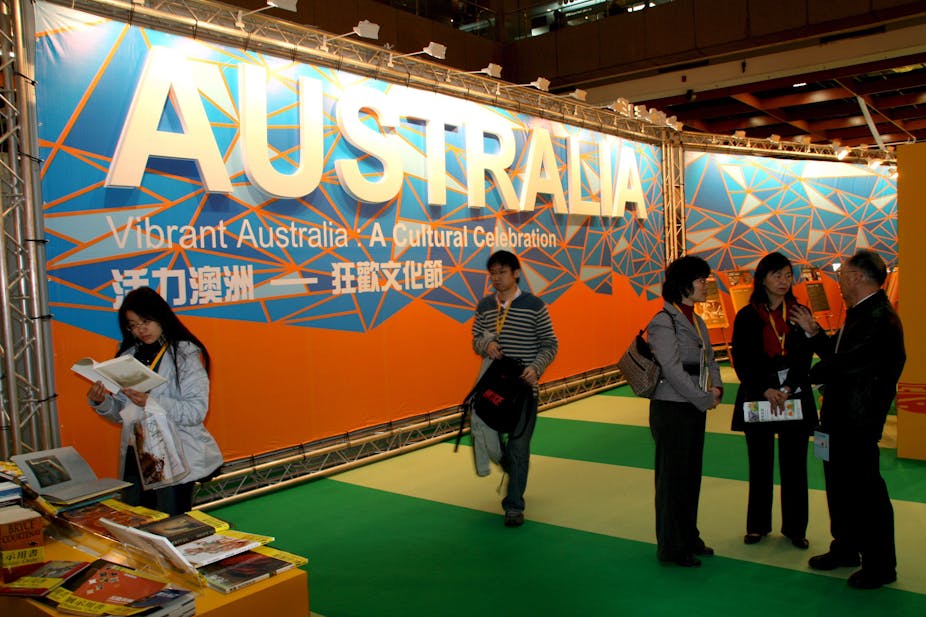As noted by the Prime Minister’s White Paper on Australia in the Asian Century, managing the opportunities presented by the profound changes underway in the Asia‑Pacific is a major challenge for all regional economies.
A bilateral relationship that is deserving of further engagement is Australia’s economic relationship with Taiwan.
Taiwan is our sixth largest merchandise export market. Two-way bilateral trade between Australia and Taiwan was valued at A$13.3 billion in 2011, with Australia primarily exporting commodity goods and importing telecommunications equipment.
Australia also received A$4.9 billion in Taiwanese investment last year, while investing A$3.7 billion in Taiwan.
This robust trade and investment relationship has been facilitated by mutual understandings achieved through annual bilateral economic consultations (BEC), a process which covers issues ranging from market access to agriculture and clean energy development. The Australia-Taiwan Business Council plays an active role in promoting trade and investment between the two economies.
The BEC process represents a creative approach to engaging with Taiwan within the parameters of Australia’s “One China” policy, which precludes formal state-to-state relationships with Taiwan. While arrangements under BEC are in good repair, it is timely to broaden our economic engagement with Taiwan. There are two reasons why this matters.
Firstly, Taiwan is a rapidly industrialising economy with a large and growing middle class. It is liberalising its economic structures to welcome more foreign investment as a driver of growth. This presents opportunities for Australian businesses to enhance commercial links with Taiwan through increased trade in goods and services and, greater investment flows in areas such as education, tourism, financial services and clean energy-related markets.
Secondly, the deepening of Taiwan’s relationship with China through the signing of the Economic Framework Cooperation Agreement (ECFA) in 2010 has opened doors for Taiwan to play a more influential role in shaping regional financial and commercial policies.
Under ECFA, barriers to investment across the Taiwan Straits are being liberalised. One notable measure, among others, includes the lifting of a previous ban on non‑Taiwanese investors from raising funds in Taiwan to invest in China. These policy reforms are aimed at developing the funds management industry in Taiwan and a deeper and more liquid financial sector.
The contemporary environment offers significant opportunities for Australian fund managers to not only invest in Taiwanese assets to diversify their portfolios, but to also enter the Taiwanese market as an investment gateway into China.
Australian fund managers, who operate the largest asset management industry in the Asia-Pacific and the fourth largest in the world, can also provide a unique value-add to regional clients by providing expert wealth management and investment banking advisory services. This will enable Australia to attract more portfolio investment from Taiwan.
However, these developments will not just happen in a vacuum. It will require the concerted effort of all stakeholders, from governments to private businesses to individual communities in Australia and Taiwan. Existing avenues of engagement between Taiwanese and Australian businesses, such as the Australia-Taiwan Business Council will be important.
Governments — the final arbiters of policymaking in the national interest — also have a special role to play. They have to demonstrate political leadership through appropriate policy support, which may vary in some cases from facilitating economic transactions and growth to removing or renewing policies that, in time, have become barriers to greater economic cooperation.
Governments will also need to harmonise policy and regulatory cooperation to meet the needs that businesses will require to excel in a region undergoing economic integration.
Suggestions for policymakers
Consideration should be given to the following proposals to enhance and deepen the partnership arrangements that exist between Australia and Taiwan.
Official and business discussions under the BEC should be widened to include education, financial services, tourism, ICT and intellectual property rights.
Transparency in official and business publications on existing bilateral arrangements should be improved to raise business confidence.
Ministers and officials in both economies could support a review of existing impediments to trade and investment flows, followed by action to remove them.
A cooperative relationship between Taiwanese economic policymaking institutions and the Australian Productivity Commission should be encouraged, with a view to establish an independent advisory body in Taiwan to promote structural reforms to enhance competition and productivity.
Peak Taiwanese and Australian university bodies could collaborate to establish and broaden delivery of tertiary educational services.
Commission a review to determine interest in establishing joint research groups, funded by the public and private sectors, to promote collaboration on leading research in IT and business technology, logistics and supply chains, and biochemistry.

